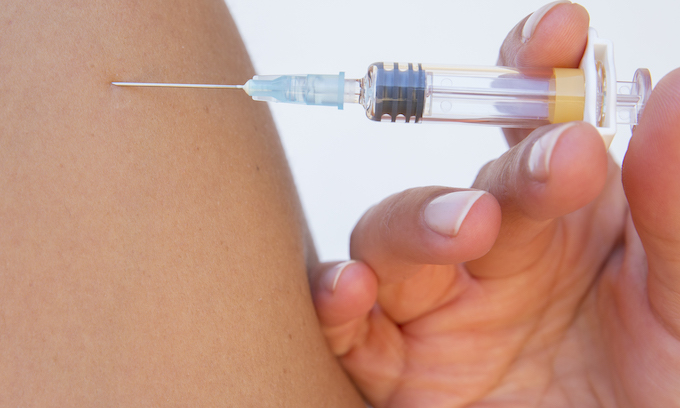Most Americans eligible for a COVID-19 bivalent booster chose not to get it, and researchers say they now know why.
Previous research found that over 80 percent of Americans eligible for the booster decided against it. A new survey administered between February 13 and March 29 of nearly 2,200 Arizona respondents, averaging 53 years old, revealed why those who chose to forgo the booster did so in the fall of 2022.
Those who shied away from the shot reported doing so for five main reasons. Nearly 40 percent said they had already been infected with the COVID-19 virus. Over 30 percent were concerned about vaccine side effects, and 28.6 percent felt the bivalent booster would not provide more protection than the doses they had already received. About 23 percent were either concerned about vaccine safety or believed the extra dose would not protect against a COVID-19 infection. Twelve percent said they didn’t think the booster would protect them against severe disease or death.
The new findings, published in Vaccine, are worrisome to the study’s primary author, Elizabeth Jacobs, a professor of epidemiology at the University of Arizona’s Mel and Enid Zuckerman College of Public Health with a doctorate in nutritional sciences.
“Our results indicate that many people don’t know that a booster provides additional protection even if they have already been infected or that the effectiveness of prior boosters wanes over time due to new variants,” Ms. Jacobs said in a news release.
Additional Reasons People Declined the Shot
The other less common reasons people declined the booster were that survey participants:
Didn’t know they were eligible.
Didn’t know the shot was available.
Didn’t have time.
Didn’t know where to get it.
Didn’t realize it was a new booster after seeing the advertisement.
Were concerned about taking time off from work to get it.
Were concerned about the cost and how to pay for it.
The data also showed survey respondents provided different answers based on their personal characteristics. Those younger than 53, women, Hispanics, and those less educated and reporting a lower income were less likely to get the booster.
Does the Booster Provide Extra Protection?
COVID-19 is continuously evolving. But the question remains: Does the bivalent booster provide added protection against the virus?
The bivalent booster has received mixed reviews. The updated shot is intended to protect against both the original COVID-19 strain and the omicron variant, and the National Institutes of Health (NIH) claims it is “significantly more effective than the original boosters at preventing hospitalizations and death from COVID-19.”
However, a 2023 study found that the omicron-targeted bivalent vaccine was only 31 percent effective in 18- to 59-year-olds and 14 percent effective in 60- to 85-year-olds who had previously received the primary vaccination series and at least one booster dose.
The study also showed prior omicron infection provided higher protection than bivalent vaccination among persons, “even though the time since prior omicron infection was longer than the time since bivalent vaccination,” authors wrote.
The study went on to say the combination of vaccination plus infection—referred to as hybrid immunity—provides better protection against infection than vaccination alone.
Side Effects
The COVID-19 vaccine is known to be associated with several—albeit rare—side effects, including anaphylaxis, which occurs in approximately five cases per 1 million doses. Guillain-Barré Syndrome (GBS) after COVID-19 vaccination is also a known side effect. GBS is a neuromuscular disorder resulting in damaged nerve cells that can then cause muscle weakness and sometimes paralysis.
Additionally, myocarditis and pericarditis after COVID-19 vaccination may also occur. Myocarditis is inflammation of the heart muscle itself, while pericarditis is inflammation of the heart’s outer lining. Data show males in their late teens through early 20s are most susceptible to the condition, and it is most likely to occur after a second dose of the vaccine.
Thrombosis with thrombocytopenia syndrome (TTS) (which causes blood clots) after COVID-19 vaccination has been observed but is more closely related to the J&J COVID vaccine. The number of cases per million doses is low at just 4 in 1 million.



















I’ve yet to get a single shot, and never WILL..
Good. You’ve made the right call.